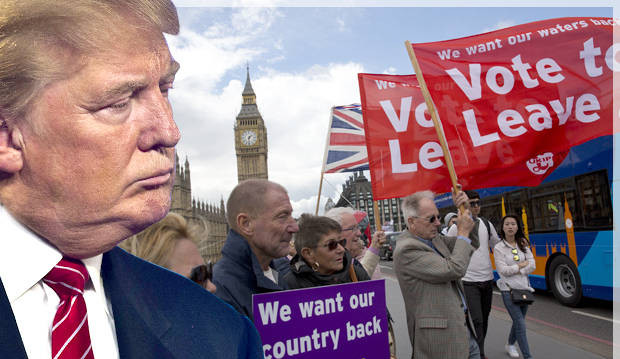David Dunn of the University of Birmingham writes for Spain’s La Razon:
Donald Trump’s narrow victory in the US Presidential elections demonstrates that Brexit — the verdict in June’s UK referendum to leave the European Union — was not a one-off maverick event. Instead it must now be seem as part of a wider anti-establishment, anti-immigrant trend which may well have further episodes in France, the Netherlands, and elsewhere in Europe. While the Brexit process for the UK and Europe has a long time to play out, the populism that underlies it — together with four years of a Trump Presidency — are likely to bring further shocks to the international system.
Trump’s election throws open a whole series of questions on issues which most people considered settled. These include the gradual progress towards free and open trade; America’s commitment to NATO and the security of Europe; Washington’s relations with Moscow; and a US engaged internationally as the guardian of the global order. They must force all European states, individually and collectively, to consider the implications of this seismic shift.
For British Leavers, part of the appeal of Brexit was that it could bring the UK closer to the US in a free trade deal and that, anyway, Britain had more in common with Washington than Brussels. But under Trump, America looks less familiar and neither a trade agreement not an American commitment to the defense of Europe can be assumed.
For the EU, the hard and uncompromising stance towards the UK that has followed Brexit may also need to be reconsidered. The UK is a net contributor to European defence and security in terms of its military spending, willingness to use force, and its nuclear guarantee. After Trump’s election, the value of those contributions to Europe has just increased.
Trump’s election demonstrates that the assumptions of the post-war period cannot be taken for granted. For 70 years, America has provided for European security through NATO and for 60 years the European project has furthered political and economic integration. It is now clear, however, that we live in a period of such rapid and substantial geopolitical change and that nothing should be assumed as fixed.
Trump’s election will undoubtedly provide a new context for Britain’s discussion with the EU over Brexit. How much that context will shape those negotiations in large part depends on the new President, but it will also depend on how Russia and others react to him. How far and how quickly the institutions and assumptions of the post-war period are untangled is now a bigger question than the reaction of Brexit.

